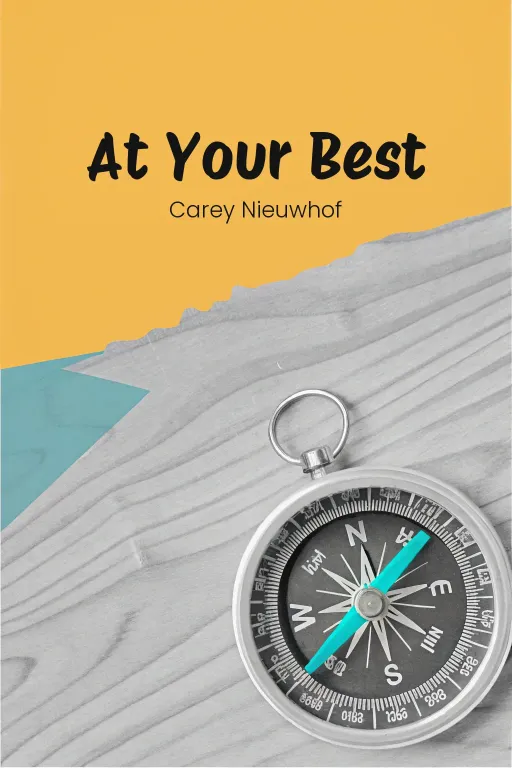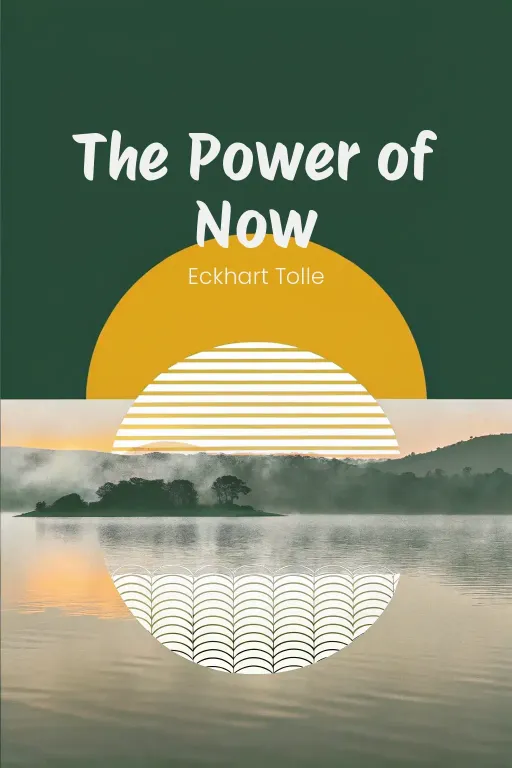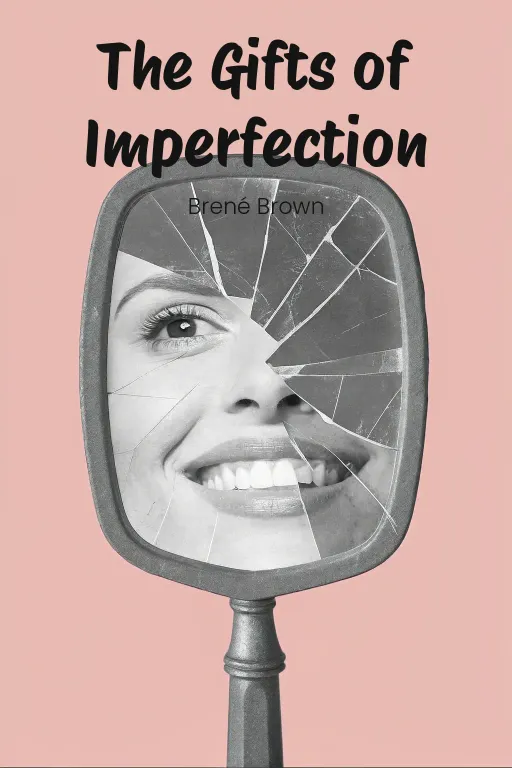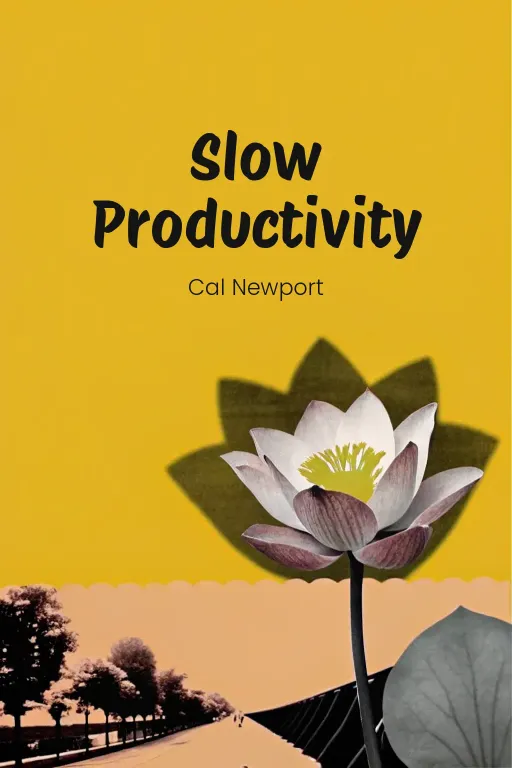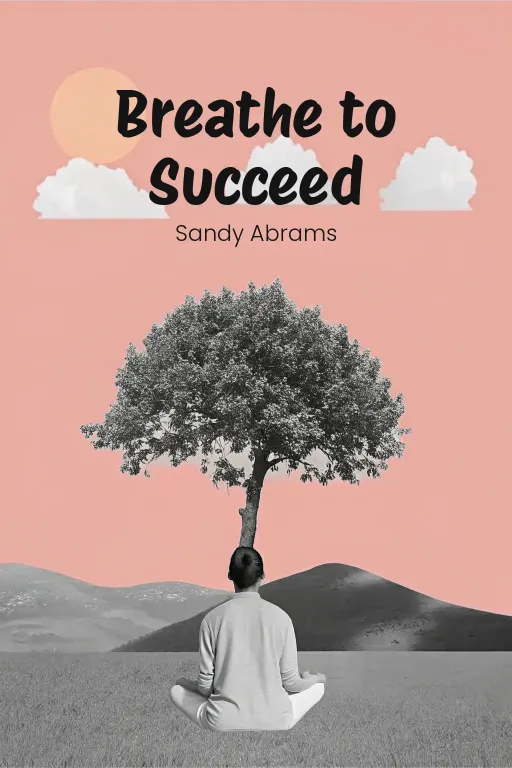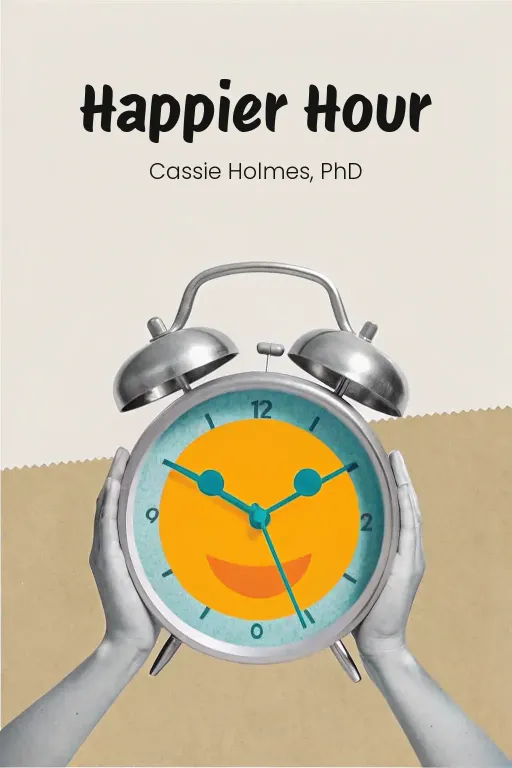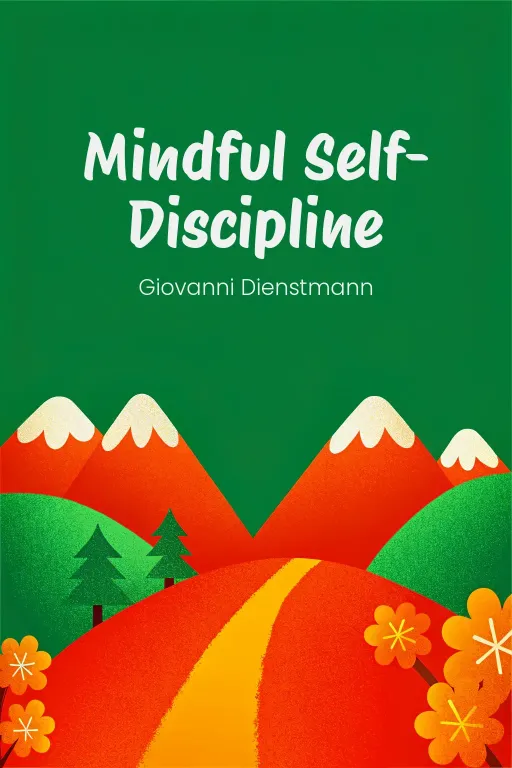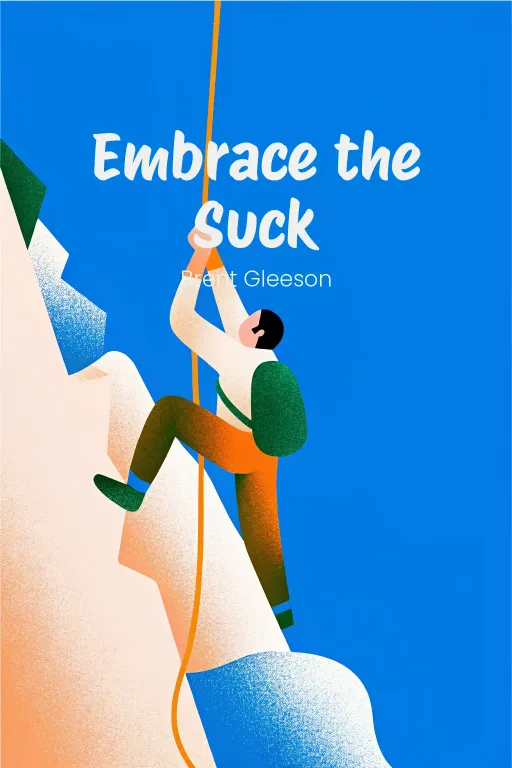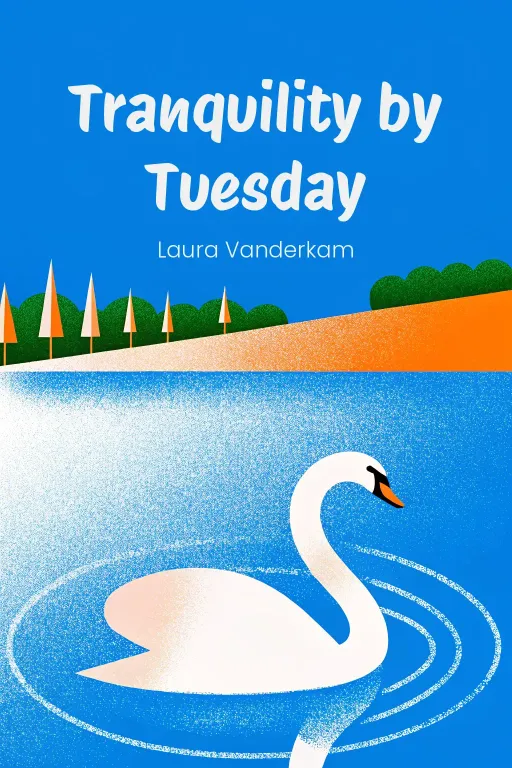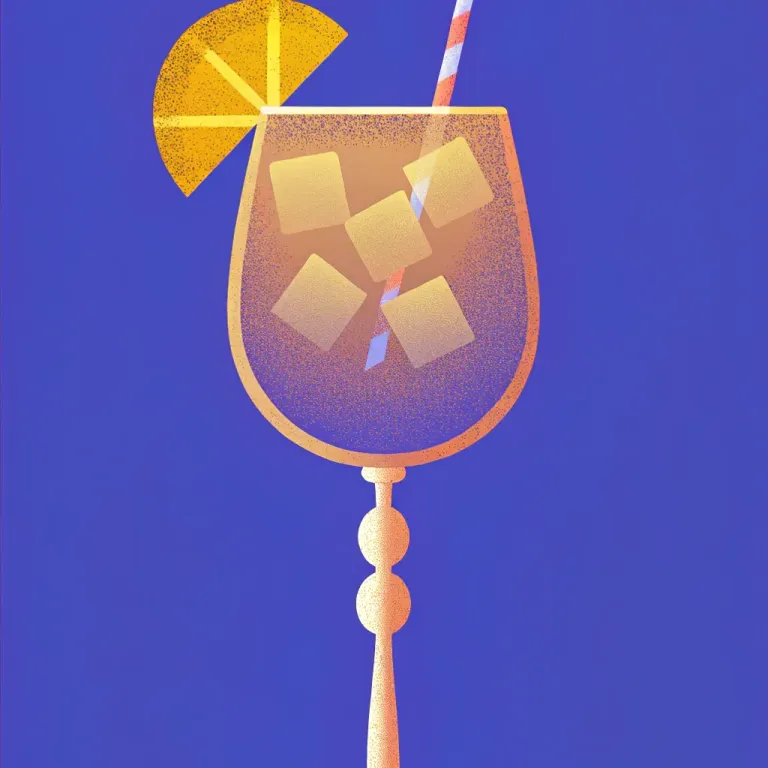
Time is NOT the Enemy–Here's Why!
Podcast by The Mindful Minute with Autumn and Rachel
How to Beat Distraction, Expand Your Time, and Focus on What Matters Most
Time is NOT the Enemy–Here's Why!
Part 1
Autumn: Hey everyone, welcome! Today, we’re tackling something we all crave more of: time. I mean, how often do you catch yourself saying, "There just aren't enough hours in the day," or feel like your to-do list is expanding while your happiness is contracting? Rachel: Or, you know, the flip side: having “too much” time and still wondering why you're not content? Just last week, someone told me they retired early, only to feel utterly bored. So… where's the Goldilocks zone? Autumn: Exactly, Rachel, and that’s precisely what we’re exploring today. We’re diving deep into the fascinating connection between how we spend our time and our overall happiness levels. Rachel: And it's all sparked by this book that lays bare the profound effect our time usage has on life satisfaction. Spoiler alert: it’s not just about trimming stress or binge-watching Netflix. Autumn: Nope, not at all! This book melds research, personal narratives, and actionable wisdom to pinpoint why both constant frenzy and excessive leisure can drain our joy. Instead, it guides us towards making conscious, meaningful decisions about where our time goes. Rachel: Sounds great on paper. But I bet half our listeners are already thinking, "Yeah, sure, I'd love to invest in social connections or mindfulness, but who even has time to think about time?" Autumn: That's why we're breaking it down piece by piece. Today, we’re unpacking three key ideas: First, how time impacts your happiness—because it’s not just about the clock, it’s about what you fill it with. Rachel: Second, spotlighting the brain’s sneaky traps that sabotage our happiness—think of all those mental loops that trick us into wasting time or feeling unfulfilled. Autumn: And third, we'll equip you with tangible steps to reclaim your time and transform it into a tool for happiness. From tiny daily tweaks to bigger life pivots, you’ll discover a framework for crafting a genuinely joyful life. Rachel: So, fundamentally, we're not just managing time, but mastering it—like turning time from that frenemy into your most valuable ally. Ready to dive in? Autumn: Absolutely! Let’s jump right in!
The Role of Time in Happiness and Well-Being
Part 2
Autumn: Okay, so let's dive into this fascinating idea of the "upside-down U-shaped curve" when we talk about free time and happiness. It's not as simple as thinking "more free time automatically equals more happiness," is it? Rachel: Not at all. That curve really made me think. On one end, you're battling "time poverty"—less than two hours a day to yourself, feeling like you're constantly underwater with obligations. But then, flip it over, and too much time, say beyond five hours, and people start feeling lost. It's like… Goldilocks and the Three Bears, but with time management. Autumn: Precisely, Rachel. The research supports this. A study by Hal Hershfield and Marissa Sharif showed that people with less than two hours of discretionary time report higher stress levels, less overall satisfaction, and often miss out on valuable moments—connecting with loved ones or even just basic self-care. Rachel: Because they're just in survival mode, bouncing from one task to the next. But here's what I find interesting: How does having too much time, like those who retire early or people without commitments, actually lead to unhappiness? Shouldn't we be ecstatic to have all the time in the world? Autumn: It’s a fair point, and it's what makes the study so valuable. People actually need a sense of purpose and structure to feel fulfilled. Take the example of the author’s friend Ben, who retired early thinking it would be paradise—no schedule, no deadlines. Instead, he found himself restless, almost bored. Without real engagement to fill his hours, his days felt meaningless. Rachel: Right, so we're all kind of walking a tightrope, trying to find that balance—enough free time to decompress, but not so much that we feel rudderless. It almost makes you wonder why we struggle so much to find that middle ground. Autumn: Well, one major factor is "time scarcity"—the feeling that you never have enough time. Research shows nearly half of Americans experience this. And the emotional cost is huge. The constant pressure to be productive leaves people feeling trapped, even in their free time. Rachel: The modern hamster wheel, right? It reminds me of the anecdote where the author was taking a late-night train, totally drained from work despite having just accomplished something impressive. Everything looked successful on the outside, but she felt empty inside. She realized she was so consumed by her responsibilities that even the joy of achievement lost its flavor. Autumn: Exactly, and I think that resonates with so many of us. It's not just about being busy; it's about how these packed schedules leave no room for reflection, connection, or just plain old fun. That’s why one of the book’s real takeaways is learning how to use discretionary time intentionally. Rachel: Okay, let's stop right there. We throw around the word "intentional" a lot these days—intentional eating, intentional living... What does being intentional with time even look like in practice? Autumn: Great question! At its core, intentional time use means aligning your time with your values and what brings you joy. Instead of cramming every obligation into your schedule or mindlessly scrolling through your phone, you consciously choose activities that are meaningful to you. Rachel: Like making time for family or pursuing a hobby instead of just collapsing on the couch after work? Autumn: Exactly. Or think of the author’s example—making deliberate choices like cuddling with her son Leo in the mornings, setting aside time for real conversations with friends, and cherishing moments with her husband. These aren’t huge changes, but they add a richness to life that counteracts the weight of time scarcity. Rachel: So, it’s quality over quantity, huh? Let's get practical. How do you actually find that quality time when your schedule is already overflowing? What about all the obligatory stuff you can’t just ditch? Autumn: That’s where the practical tools come in. The book highlights strategies to maximize the discretionary time you do have. For instance, the "time tracking and reflection" method helps you see where your hours are going and which activities bring you the most satisfaction. It’s a simple way to identify what you want more of—and what you can cut back on. Rachel: Sort of like a personal budget, but for time instead of money? Autumn: Precisely! Another strategy is "bundling purpose with joy." You pair mundane tasks with something enjoyable. Like listening to a podcast you love while cleaning the house, or calling a friend while walking outside. Rachel: Okay, I like that. It’s efficient and doesn’t require carving out extra time we don’t have. Still, my inner skeptic is wondering: What if your schedule is so packed there’s no give? What if you simply can't make even these small adjustments? Autumn: That’s a crucial question, and the book addresses it head-on. It acknowledges structural challenges—like the fact that caregiving roles often fall disproportionately on women, or that lower-income families may not have the luxury to outsource chores or reduce hours. In such cases, achieving balance might require systemic changes, not just individual tweaks. Rachel: You’re hitting on something essential there. It’s one thing to say, “Track your time” or “Prioritize joy,” but another to actually do it when societal or financial pressures make even five free minutes feel impossible. Autumn: Absolutely, and the book emphasizes that while personal strategies can help, we also need to discuss work culture, gender roles, and accessibility more broadly. Yet, even seemingly small steps—like a daily assessment through a "purpose lens"—can make a difference. Ask yourself, "Does this commitment align with my values and happiness?" If not, maybe it’s worth reconsidering. Rachel: Like when the author decided to be a room parent in her daughter’s class rather than volunteer for a fundraiser gala, because one was deeply meaningful and the other wasn't? Clever. Autumn: Exactly! The main point here is that happiness isn’t just about how much time you have, but about how intentionally you use it. By focusing on what truly matters, even limited discretionary time can become a source of joy and fulfillment.
Addressing Psychological Barriers
Part 3
Autumn: Understanding how time impacts happiness leads us to really dig into the psychological and societal hurdles that keep us from using our time well. That brings us to today's topic: tackling those pesky psychological barriers, like hedonic adaptation and regret. These mental traps can “totally” mess with our happiness, and honestly, dealing with them is essential before we can even think about more practical solutions. Rachel: Hedonic adaptation and regret, huh? Sounds like a fancy way of saying we're our own worst enemies. So, hedonic adaptation, that’s where we just… get used to stuff, whether it's good or bad, right? Autumn: Exactly. It's that human thing where we quickly get used to changes, even big ones – like landing that dream job or buying a new car. It feels amazing at first, but then it just becomes… normal. While it can protect us from constant sadness during tough times, it also makes it harder to maintain happiness from good experiences. Rachel: So, we’re constantly chasing that initial buzz. Like buying a new laptop—first, you're blown away by how fast it is and then, three months later, it’s just another thing sitting on your desk. Autumn: Exactly! And this "need for new" thing doesn’t just apply to material things, but to life events, too. Graduations, promotions, weddings… they're amazing at first, but it’s hard to stay in that excited state for long, thanks to hedonic adaptation. Rachel: Right, but can you “really” avoid this adaptation? I mean, are we supposed to, like, meditate on every vacation memory forever? Sounds exhausting. Autumn: Good point! Luckily, you don't have to do anything extreme. One of the strategies the book mentions is introducing variety. Take commuting, for example, which a lot of people just dread. Studies often show it's one of the most disliked parts of the day. But then there's Jim, the physical therapist in the book, who totally changed his commute experience. Rachel: Ah, yes, our friend Jim, the ‘commute whisperer,’ who made two hours on New Jersey trains actually enjoyable. What was his secret? Noise-canceling headphones and binge-watching shows? Autumn: Sort of! Jim approached his commute mindfully. Instead of being bored or frustrated, he saw it as personal time. He listened to audiobooks, observed the seasons, and really paid attention to his surroundings. By bringing in variety and mindfulness to an otherwise dull experience, he changed a problem into a moment of joy. Rachel: Okay, I admit that’s pretty clever. But what if you're not like Jim? What can the rest of us do to keep life from feeling like one big repeat? Autumn: There are a few helpful things you can do to fight hedonic adaptation. Savoring is one—really paying attention to and trying to make positive moments last longer. For example, instead of gulping down your morning coffee, take a moment to really enjoy the aroma, the taste, the quiet. It makes you slow down and fully appreciate the experience. Rachel: So, it’s like hitting pause instead of fast-forward? Makes sense with coffee, but how do you do it with bigger things, like a promotion? Do you just… stare at your award for an hour? Autumn: It’s not about staring; it's about celebration and gratitude. Savoring isn’t just for the little things – you can express thanks and gratitude by writing down what the achievement means to you, or share the joy with friends and family. The book also mentioned journaling about happy moments to look back on them, which studies show increases life satisfaction. Rachel: Okay, journaling seems doable. It’s not the most exciting thing, but I see the value. But what about easy ways to just mix things up? Not everyone can find joy staring out a train window. Autumn: That’s where variety is so important. Small changes to your routine—reading something different, going to a new park, even swapping your playlist for a podcast—can bring back that sense of discovery. It keeps things feeling fresh, not stale. Rachel: Nice. So, we’ve got savoring, journaling, and variety—all things to keep us from getting stuck in a rut. Now let’s talk about the scarier thing: regret. Why does this one matter for happiness? Autumn: Regret is a huge emotional obstacle. It’s the pain of missed chances or bad decisions, and it can really overshadow the present. The book says we should see regret as a tool. By thinking about potential regrets before they happen, you can use it to guide important choices and make your life align with what you value. Rachel: So, regret’s like that annoying relative you can't avoid, but maybe you can learn something from them. How do we get it to help us instead of hurt us? Autumn: The book mentions two exercises that are really insightful. First, writing your own eulogy. It’s not about being morbid – it's about thinking about how you want to be remembered. What will your legacy be? Kindness? Creativity? Are you living in a way that matches that? Rachel: Writing a eulogy seems… intense. But I get it—it’s like a compass for your life priorities. What’s the second thing? Autumn: Interviewing older people. By talking to people who’ve lived full lives, you can see what really matters. Asking questions like “What’s brought you the most joy?” or “What do you wish you’d done differently?” can reveal common themes, especially about the importance of relationships and having a purpose. Rachel: So, you’re saying I should bug my 90-year-old grandfather this weekend for life advice? Autumn: Basically, yes! Those talks can be life-changing. Older people have experience that we don't, which makes them really helpful in avoiding the mistakes they made. And their emphasis on things like relationships shows that regret is often linked to connection. Rachel: Okay, but what about people who already have a lot of regrets? If you’ve made bad choices for years, is it too late to change things? Autumn: Not at all. Regret isn't final—it’s fuel for growth. Thinking about what you didn’t achieve can inspire action to fix things. If you regret not spending enough time with your kids, start making family dinners a priority. Even small changes like that turn regret into something positive. Rachel: So… regret isn’t our enemy, but a wake-up call. Got it. Let me just add “fix my mistakes” to my to-do list. Anything else about overcoming this? Autumn: Yes—choosing intention over fear or putting things off. Regret often comes from not taking action, not from failing. By making choices that reflect your values, you avoid just drifting aimlessly. The exercises we talked about—writing your eulogy, interviewing elders—are the kinds of proactive things that encourage thoughtful decision-making. Rachel: Well, with hedonic adaptation and regret, it’s pretty clear our brains like to make things complicated. But the good news is, it sounds like we can break free—we just have to actually do it. Autumn: Exactly. These obstacles aren’t impossible; they’re chances to grow. Whether it’s finding something new in your routine, slowing down to enjoy happy moments, or turning regret into motivation, these things help you rethink how you spend your time—both mentally and emotionally. Rachel: Alright, Autumn. You’ve convinced me.
Strategic Time Management
Part 4
Autumn: Okay, so we've talked about the internal roadblocks to using our time well. Now, let's get practical—how do we actually manage our time better, day to day? This is where we shift from understanding the "why" to the "how." It's about being strategic and making sure our time reflects what truly matters to us. Rachel: Time mastery, huh? Sounds like a black belt in scheduling! I'm betting we'll hear about to-do lists, prioritization, and the art of saying "No.” Autumn, I'm sensing a memorable metaphor coming our way to make it stick? Autumn: Nailed it, Rachel! Let's talk about the "time jar." Imagine your life's time as a jar. The key is to load in your "golf balls"—the big, meaningful stuff—first. Then you fill in around them with the smaller pebbles and sand. If you start with the sand, you'll never have room for the things that truly make you happy. Rachel: Okay, so filling my day with "sand"—endless social media or email chains—leaves no room for the "golf balls." Got it. But, Autumn, what is a "golf ball"? Surely it's not just work deadlines? Autumn: Absolutely not! "Golf balls" are things that resonate with your values or bring you joy. Think quality time with family, hobbies that feed your soul, or even just dedicated rest. The book gives a great example: The author volunteered at her child's school as a classroom parent because it strengthened her family connection, but declined the gala committee because it didn's align with her values. Rachel: So, almost like having a personal filter for commitments? A screening process. "Does this make it into my time jar?" Autumn: Exactly! The book calls it the "purpose filter"—a reflective tool for weighing commitments. First, define your "golf balls"—what lights you up? Family dinners, music, nature walks, whatever. Schedule those proactively each week. Then, when new requests pop up, ask: "Does saying 'yes' to this align with what matters most?" Rachel: Part proactive planning, part saying "No" to what I’m going to call "pebble purgatory.” But, Autumn, what if my jar is already half-full of "non-negotiable sand"? Demanding work hours, caregiving duties... Where do you even find space for the "golf balls"? Autumn: That's a valid point. Things like financial constraints, work policies, or caregiving definitely limit flexibility for many people. However, even in packed schedules, you can often shift priorities or rethink how you spend time. One example? "Bundle joy with obligation." If you cook dinner every night, make it a family affair—a chance to connect. Or listen to audiobooks while doing laundry. Rachel: Hacking chores to become "golf ball" time! I like it. Takes creativity, though, right? Speaking of managing distractions, let’s talk about the biggest culprit—unfettered technology. Autumn: Oh, the tech rabbit hole! I know where this is going. Those screen-time weekly reports on my phone are brutal! Reminders that Instagram is consuming my life. Rachel: You're not alone. Devices are tools, but without boundaries, they become houseguests stealing our time and focus. So, setting clear boundaries or even doing "digital detoxes" is key to reclaiming meaningful moments. Autumn: A "tech-free dinner table," perhaps? Autumn: Absolutely. Device-free meals encourage better conversations and deeper connections. The author tells a story about Cat, whose husband spontaneously re-proposed while she brushed her teeth. A small, silly moment, but deeply connecting because they were present with each other. Rachel: Okay, presence trumps scrolling. But beyond the dinner table, how would one create manageable tech boundaries? Autumn: Start small! Designate "tech-free zones" in your day—mornings, before bed, whatever. Schedule weekly digital detoxes. The author suggests even half an hour for tech-free nature appreciation or stillness. Rachel: And for those really struggling, there are app blockers, right? It's ironic when technology limits itself! But Autumn, what if you do all this—manage time, set boundaries, reprioritize—and still feel overwhelmed? Is outsourcing tasks really that life-changing? Autumn: Smooth segue, Rachel! Delegating tasks you dislike—cleaning, shopping, errands—can free up energy for more meaningful activities. The book shares Angela's story: She resisted hiring cleaning help, thinking it was a luxury. But, after constant stress and a family argument, she realized paying for the service meant weekends filled with relaxation instead of chores. Rachel: Spot on about the resistance! Isn't outsourcing often seen as a luxury or even... selfish? How does the book tackle those cultural hang-ups? Autumn: Great point. There's often a sense of guilt—"I should be able to do it all!" But studies show that people who outsource chores report greater happiness. It's not just convenience; it's about reallocating energy toward experiences. The book suggests starting small—even outsourcing one task can show you what's possible. Rachel: But the magic only happens if you consciously use that reclaimed time on your "golf balls." You can't just outsource laundry and then binge-watch crime shows for six hours, right? Or can you? Autumn: Technically, it's your time. But the book stresses reinvesting that time in fulfilling activities—shared experiences, personal growth, or rest. Happiness isn't about being busy; it's about being intentional. Rachel: I like that framework, Autumn—prioritizing, filtering, setting boundaries, delegating. The big takeaway is that it's less about how much time you have and more about how strategically you use it.
Conclusion
Part 5
Autumn: Okay, so let’s wrap up what we've been discussing today. We really dug into the connection between time and happiness, didn't we? From that “upside-down U-shaped curve”—finding that sweet spot of free time—to understanding how things like hedonic adaptation and regret can trip us up, it's clear that how we use our time has a massive impact on our well-being. Rachel: Right. And we went beyond just the theory, thankfully. We talked about practical solutions, like that “time jar” idea for prioritizing what really matters. Plus, bundling enjoyable activities with the necessary ones, setting boundaries with tech, and outsourcing when you can. Ultimately, it's about aligning your time with what you value and creating space for real, meaningful moments. Autumn: Exactly, Rachel. The core of our conversation is this: happiness isn't about packing more into your day or having unlimited free time. It’s about consciously using the time you do have—choosing to concentrate on activities that bring connection, purpose, and, of course, joy. Rachel: So, the big takeaway is this: really examine your time jar. What’s filling it up? Are unimportant things taking up space that should be for the really important stuff? Start using the strategies we talked about to reshape how you spend your time. Not just to get more time, but to make the time you have truly worthwhile. Autumn: And remember, even small changes can make a difference. Whether it’s fully enjoying little moments, reassessing commitments, or just thinking about what you truly value, every choice you make moves you closer to a life where your time feels well spent and fulfilling. Let’s all try to be a bit more thoughtful with our most limited resource: time. Rachel: I completely agree. Thanks for tuning in, everyone. Now, go out there and make the most of your time!

